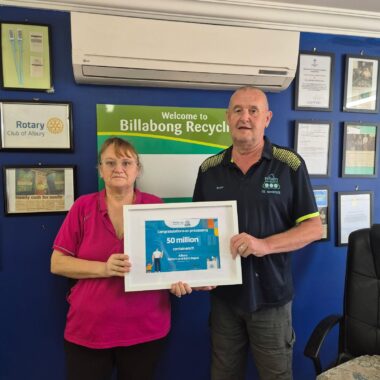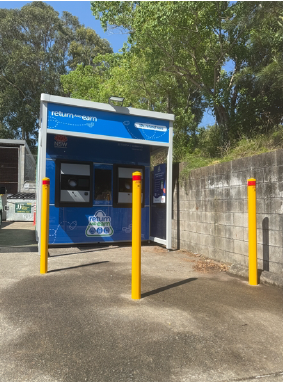World leaders will gather in Azerbaijan next week for the UN Climate Change Conference 2024, also known as COP29 or the Conference of Parties of the UN Framework Convention on Climate Change. Previous COPs have produced pivotal global decisions, such as the 1997 Kyoto Protocol, establishing the carbon market and obliging industrialised nations to curtails emissions, and 2015 Paris Agreement to cap global temperatures at 2C.
This year’s conference will take place in Baku, Azerbaijan, from 11 to 22 November, where the focus is expected to be on the finance of climate change.
Monash University has sent a delegation of climate action leaders, including academics and students, to each conference since becoming an official COP Observer Organisation in 2016. We aim to accelerate global action on sustainability, empowering diverse voices from across the Indo-Pacific and influencing superior policy outcomes across a broad range of issues. Find out more monash.edu/cop29
Available to comment:
Dr Matthew French, Senior Director, Research Missions and Impact
Contact: +61 456 428 906 or [email protected]
- Urban development in low- and middle-income countries
- Climate and health
- International development and the United Nations and global multilateral systems
Dr French will be attending COP29 from 11 to 16 November
Comments attributable to Dr French:
“COPs may seem like distant, complex negotiations, but their outcomes impact everything from local policy decisions to international trade, energy systems, and public health. Climate change is a global issue that does not recognise borders, and the COP process is one of the few platforms where all nations unite to tackle this shared existential challenge. With the US election result, it is more important than ever to keep pushing for global cooperation and consensus-building on climate action.
“Decisions made at COPs shape national commitments to reducing emissions, funding adaptation in developing nations, and promoting the innovations essential for a green transition. As the climate crisis deepens, the urgency of COPs only grows, demanding sustained engagement from governments, institutions, and individuals alike.
“Universities are uniquely positioned to engage in the multilateral system through research translation, science diplomacy, and data-driven approaches. By building capability among future leaders, universities ensure negotiators and advocates are equipped to engage with the complexities of COPs and the broader climate action agenda. For example, Monash University’s alumni network of 450,000 across the region is a powerful force that can drive change across borders. Universities can excel at fostering continuity between COPs through sustained research, collaboration, and policy engagement, ensuring that the work doesn’t stop once the conference ends.”
Available to comment:
Kylie Turner, Sustainable Economics Lead at Monash’s Climateworks Centre
Contact: +61 409 102 063 or [email protected]
- Sustainable pathways towards net zero
- Industrial decarbonisation
- Green economic transformation
Turner will be attending COP29 from 14 to 22 November
Comments attributable to Turner:
“COP29 is about the global community setting itself up for the economy of tomorrow – one that aligns with net zero emissions. What we need to see is consensus and agreement on the infrastructure to accelerate the activity we need to ensure we have the best chance at a safe climate. Finance is a key enabler of the shift to a low emissions future. The climate finance goal on the agenda will help climate action move faster. Agreement on the climate finance goal will also be important for countries who are currently developing their next commitments to global emissions reduction. While we don’t expect the entire issue around climate finance to be resolved with this one conference, we hope it can settle some of the decisions needed to make together on finance to unlock our next steps.
“COP29 is a crucial opportunity for Australia to take a seat at the global table and establish the new 2035 climate ambition, which is due next year. This is especially true as Australia bids to host COP31, in partnership with our Pacific Island neighbours.
“The focus for the next commitments to global emissions reduction must be on limiting warming to 1.5C above pre-industrial levels. The recent State of the Climate report showed us we are already feeling the impacts of climate change here in Australia, as are our neighbours in the Pacific. We are at a critical juncture and we can’t afford not to act.”
Available to comment:
Susie Ho, Associate Professor, Director, Monash Innovation Guarantee, Associate Dean International and Graduate Education
Contact: +61 402 353 470 or [email protected]
- Sustainability and environmental science
- Youth voice in intergovernmental forums
- Action for Climate Empowerment (Article 12 of the Paris Agreement)
Associate Professor Ho has coordinated Monash’s COP29 delegation
Comments attributable to Associate Professor Ho:
“COP, or the Conference of the Parties, represents an annual global gathering dedicated to addressing the dire existential threat posed by the climate crisis. Despite being a source of considerable controversy, primarily due to the perceived lack of substantial progress in combating the climate catastrophe, COP remains essential to reaching consensus on climate issues among 198 participating countries.
“The inaugural COP in Berlin in 1995 marked the commitment of major countries to annual discussions on climate change and emissions reductions.The official target of limiting temperature rise to below 2°C crystallised at COP15 in Copenhagen in 2009. Most notably, COP21 in Paris in 2015 culminated in the unanimous adoption of the Paris Agreement by all nations, with the objective of capping global temperature increases at 2°C, ideally aiming for 1.5°C. We are not on track to achieving this.
“This year, the focus will be on the finance of climate change, with loss and damage a cross-cutting issue, specifically determining the compensation that developing nations should receive from industrialised nations for damages incurred due to unsustainable practices. We are also starting to more deeply consider the dual climate change and biodiversity crises.”
Available to comment:
Dr Liz Ritchie-Tyo, Professor of Atmospheric Sciences, Monash School of Earth, Atmosphere & Environment and Chief Investigator of the Centre of Excellence for Weather of the 21st Century
Contact details: +61 456 428 906 or [email protected]
- Extreme weather
- Climate impacts on societies
- Atmospheric sciences
The following can be attributed to Dr Ritchie-Tyo:
“The increasing impacts of extreme weather events like Hurricane Milton should be front of mind for policymakers as they gather to discuss urgent climate action at COP29. The increasingly catastrophic threat that tropical cyclones pose to communities across the world coupled with the large uncertainty of how these impacts will change in the future underscores the need for renewed global cooperation and decisive action.
“This is an opportunity for nations to forge a path to combat climate change by reducing greenhouse gas emissions and investing in sustainable infrastructure that can withstand extreme weather. Communities must be equipped to deal with the changing impacts of weather in a changing climate, so we need our leaders to commit to clear adaptation strategies.
“The need to act has never been more pressing. A concerted global effort to mitigate climate change is the only way to address the dire threat to lives and ecosystems.”
Read more about what Monash climate experts have to say about COP29 at Monash Lens.
For more Monash media stories visit our news & events site: monash.edu/news
For any other topics on which you may be seeking expert comment, contact the Monash University Media Unit on +61 3 9903 4840 or [email protected]


